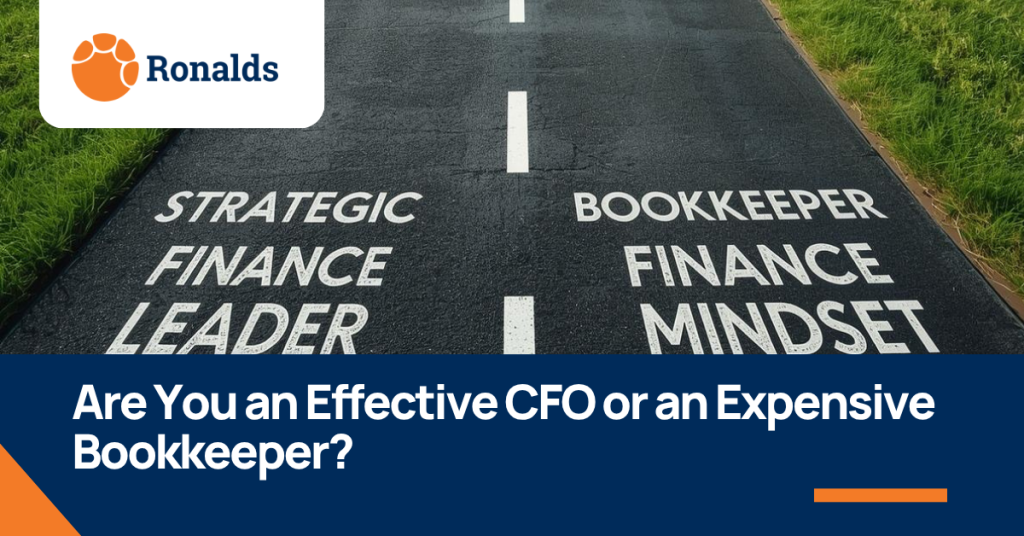Many organisations that have existed for decades still struggle to meet their daily cashflow needs, yet they deem themselves successful. Some of these organisations are trapped in large overdrafts and loans, operating year after year with minimal liquidity to show for it.
While profitability remains important, cashflow is king. Without it, even the most profitable organisation risks collapse. There must be a deliberate strategy to build and preserve cashflow to ensure long-term sustainability.
“Profit may open doors. But cashflow keeps the lights on.”
The Paradox of Profit Without Liquidity
In many boardrooms, profit is celebrated as the ultimate indicator of success. Yet behind the congratulatory tone of annual reports lies a less comfortable truth: a business can be profitable but not solvent. It can show impressive earnings but lack the liquidity to meet payroll or settle its obligations.
Profit can make an organisation look healthy on paper. Cashflow determines whether it can actually breathe.
Profitability and Cashflow: Understanding the Difference
| Profitability | Cashflow | |
|---|---|---|
| Definition | Income exceeds expenses | Receipts exceed payments |
| Recognition | Accrual basis – recorded when earned | Cash basis – recorded when received |
| Insight | Suggests a viable business model | Indicates a sustainable business model |
| Focus | Reflects performance | Reflects liquidity |
| Limitation | Doesn’t reveal collection or payment habits | Anchored on actual inflows and outflows |
Profit tells a story; cashflow tells the truth. A profitable company may still face insolvency if its collections are weak or its expenditure cycles outpace its receipts.
The Mirage of Success
Why do so many organisations appear to succeed without reliable cashflow?
- Borrowed Stability
Overdrafts and supplier credit create the illusion of financial health. The organisation looks alive but survives on borrowed funds. - Accrual Comfort
Revenue recognition before actual cash receipt gives a false sense of security. The income statement may look impressive while the bank account remains empty. - Supplier Financing
Extending payables as an informal financing method sustains operations in the short term but eventually erodes trust and creditworthiness. - Growth Without Liquidity Architecture
Expanding operations without a corresponding cashflow strategy consumes working capital and often leads to a liquidity crisis.
Accounting and Finance: The Scorekeeper and the Strategist
| Accounting | Finance |
|---|---|
| Records past transactions | Plans for future growth |
| Focuses on compliance and reporting | Focuses on strategy and sustainability |
| Keeps the score | Wins the game |
Accounting ensures accuracy; finance ensures survival. Many organisations succeed through accounting precision but fail through financial short-sightedness.
As the saying goes, “Accounting keeps the scores, but Finance wins the game.”
From Profit to Liquidity: The Leadership Shift
Leadership that defines success solely by profitability risks managing for applause instead of endurance. True financial leadership involves ensuring that every strategic decision contributes to sustainable liquidity.
Cashflow is not a by-product of good business, it is the foundation of it.
To achieve this, organisations must:
- Conduct regular cashflow forecasting and scenario analysis
- Strengthen collection policies and discipline in receivables
- Align investment and operational decisions with liquidity cycles
- Maintain a buffer to navigate volatility and economic shocks
Liquidity is freedom. It gives a business the ability to act, to adapt, and to seize opportunity when others cannot.
The Evolving Role of Finance Leadership
In a world defined by volatility, uncertainty, complexity, and ambiguity (VUCA), the modern finance leader must transition from managing accounts to shaping organisational resilience. The finance office must become a centre of strategic insight—one that champions sustainable cashflow as a competitive advantage.
Profit may build reputation, but cashflow builds resilience.
Join the VUCA Finance Leaders Forum
The discussion on profitability versus cashflow is central to the VUCA Finance Leaders Forum, to be held from 4th to 7th November 2025 at Sopa Lodges, Naivasha. This event will bring together finance leaders, CFOs, and CEOs to explore how to strengthen liquidity, align financial strategy with organisational goals, and navigate the complexities of a rapidly changing business environment.
Theme: Leveraging the Finance Role for Competitive Advantage, Growth, Profitability, and Sustainability in a VUCA Environment.
Key topics will include:
- The transformation of finance leaders from CFOs to Chief Value Officers
- Building liquidity and investment strategies for sustainability
- Strategic tax planning and compliance
- ESG and IFRS reporting (IFRS S1 and S2)
- Stakeholder communication and financial transparency
- Career mentorship and leadership development for finance professionals
Register Here: https://forms.gle/w1G9uvdGoVKwQifU6
Contact: estherw@ronalds.co.ke
“An organisation’s true strength is not in its profit margin,
but in its power to sustain itself without borrowing its tomorrow.”
Profit may open doors.
But cashflow keeps the lights on.




